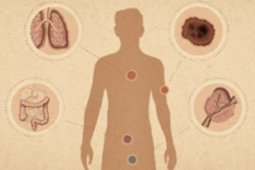Categories
- Bariatric Surgery (11)
- Black Fungus (5)
- Bone Marrow transplant (3)
- Brain Tumor Surgery Navigation Technology (20)
- Cardiac Surgery (66)
- Cardiology (97)
- Computer navigation technology for joint replacements (20)
- Covid Vaccination (17)
- Critical Care (2)
- Dental (19)
- Dermatology (31)
- Dialysis Support Group - “UTSAAH” (11)
- Dietitian (33)
- Emergency Medicine (4)
- Emotional Health (11)
- Endocrinology (33)
- ENT (20)
- Gastroenterology and GI Surgery (53)
- General and Laparoscopic Surgery (21)
- General Surgery (4)
- Gynecology & Obstetrics (183)
- Hematology (20)
- Internal Medicine (294)
- Kidney Transplant (50)
- Kidney Transplantation (20)
- Lung Cancer (8)
- Minimal Invasive Surgery (1)
- Mother & Child (20)
- mucormycosis (5)
- Nephrology (61)
- Neurology (147)
- Neurosurgery (68)
- Nutrition and Dietetics (107)
- Omicron Variant (1)
- Oncology (288)
- Ophthalmology (10)
- Orthopaedics & Joint Replacement (86)
- Paediatrics (59)
- Pediatric Nephrology (3)
- Physiotherapy (5)
- Plastic & Reconstructive Surgery (6)
- Psychiatry and Psychology (90)
- Psychologist (28)
- Pulmonology (72)
- Rheumatology (13)
- Spine Services (21)
- Transradial Angioplasty (16)
- Urology (84)
Query Form
Posted on Apr 19, 2022
Oral Cancer Risks, Treatment and Prevention
Oral cancer is among the 3 most common cancers in the Indian subcontinent predominantly due to the unique habit of chewing tobacco as betel quid.
Tobacco use account for about 90% of these cancers. Another distinctive feature in this part of the world is the association of oral cancers with sub mucous fibrosis due to chewing areca nut (supari). This results into progressive difficulty in opening mouth (truisms). Infect oral cancer risk increases when tobacco is consumed with areca nut and alcohol. Furthermore, poor oral hygiene with resultant jagged edges of teeth causing persistent friction could result into a non healing ulcer of cancerous origin. Quitting tobacco significantly reduces the risk of cancer but may take up to a decade to equate a non tobacco consumer.

So does this mean all looks grim and gloomy when one falls prey to the dreaded disease? Fortunately not! Contrary to popular belief, oral cancers are curable when treated appropriately.
- Surgery forms the cornerstone of treatment which may be followed by multimodal therapy of radiation or chemo radiation guided by stage of disease. Clinical research as well as advancements in diagnostic, surgical and radiation techniques have paved the way towards improved quality of life of oral cancer survivors.
- Better accuracy of imaging modalities in predicting jaw bone involvement besides extent of involvement of tongue can help head neck surgeons undertake conservative surgeries while ensuring oncological safety.
- Advent of free flap reconstruction has resulted into better speech, swallowing and cosmetic rehabilitation.
- Moreover, evolution of advanced radiotherapy techniques like IMRT, IGRT and 3DCRT has made headway into lesser morbidity while maintaining cure rates.
Another common belief about oral cancer is the futility of treatment in view of high risk of recurrence. The key to reduce chance of recurrence is early diagnosis, nailing the disease the first time over and maintaining a healthy lifestyle!
Take home message:
Oral cancer is one of the commonest; but preventable and fortunately curable!



